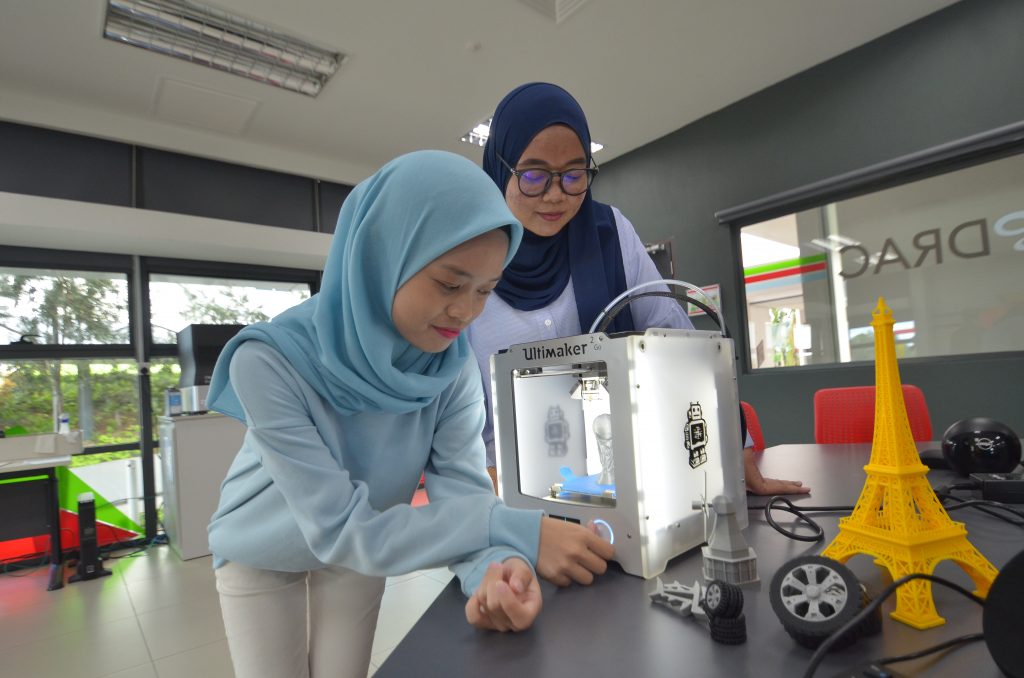Bachelor Of Arts In Industrial Design (Honours)
[N/214/6/0210] [MQA/FA 9621]

Programme Overview
Industrial Design is a methodology responsible for creating products that can be both practical and aesthetically pleasing. It focuses on the design of products by using knowledge from applied science as well as applied arts and various engineering disciplines, supported with state of the art equipment and software. The aim of an industrial designer is to create a product which fulfils aesthetical, ergonomic as well as usability standards. This programme teaches students how to combine the theoretical concepts of materials and processes with the practicality of design and patterns, and it is the type of discipline that adapts to the country it is taught in. During their academic courses, students will participate in computer labs, design studios, theoretical courses, and classroom projects. Students will learn how to develop design concepts, taking into account social, environmental, functional, financial, and aesthetic aspects. Students will also develop computer and IT skills including CAD, 3D modelling, graphics modelling, multimedia, and web-design. All of these are made to help students develop their problem-solving skills, aesthetic ability, and creativity levels. Studying Industrial Design can open the way for many career opportunities as it teaches students how to develop and design any kind of product, from mobile phones, vehicles, furniture and even fashions or videos games. The opportunities are limitless whether one wants to become a product designer, researcher, or entrepreneur.
Programme Aims
- To produce Industrial Designers with broad technical, innovative and creative knowledges, associated hands-on and entrepreneurship skills to fulfill their professional demands in the highly competitive global market with confidence, outstanding ethical and moral values.
Programme Educational Objectives (PEOs)
- PEO1: To produce graduates who are successfully engaged in multidisciplinary practices in the technology management field.
- PEO2: To produce graduates who are able to demonstrate leadership capabilities in work environment.
- PEO3: To produce graduates who are able to demonstrate effective communication in business environment.
Programme Learning Outcomes (PLOs)
Upon completion of this programme, students should be able:
- PLO1: Evaluate theories and concepts in technology management studies;
- PLO2: Communicate creative and innovative ideas using numerical and analytical skills effectively;
- PLO3: Apply critical thinking skills for decision making using digital approach and application;
- PLO4: Display innovative entrepreneurial skills;
- PLO5: Demonstrate leadership, teamwork, communication and social skills in accordance with ethical and legal practices;
- PLO6: Apply the skills and principles of lifelong learning in their academic and career development;
- PLO7: Demonstrate a level of professionalism and willingness to adhere to ethical norms and values suitable for a business professionals;
- PLO8: Demonstrate a level of social etiquette appropriate for a successful business/teaching career.
Programme Structure and Synopsis
Entry Requirements
i. Pass STPM or equivalent, with a minimum Subject Grade Value (NGMP) of 2.00 and credit in Bahasa Malaysia subject and pass English Language subject at SPM level;
OR
ii. Pass Unified Examination Certificate (UEC) with minimum Grade B in five (5) subjects;
OR
iii. Pass Diploma (KKM, Level 4) from a recognised institution or equivalent with a minimum CGPA of 2.00;
OR
iv. Pass Matriculation/Foundation from a recognised institution or equivalent with a minimum CGPA of 2.00;
OR
v. Pass Diploma Vocational Malaysia (DVM) (from any relevant Art and Design Programme such as but not limited to: Fine Arts, Graphic Design, Animation, Creative Media, Product Design, Fashion Design, Furniture Design, Interior Design, Automotive Design, Traditional Arts and Crafts Design, any other Art and Design Fields) equivalent to credits in any three subjects SPM level; pass with credit in Bahasa Melayu 1104; minimum academic CGPA of 2.00; minimum vocational CGPA of 2.67; competence in all vocational modules; SVM cohort 2012- 2016 pass History at SPM level:
OR
vi. Other equivalent qualifications subject to approval by the university’s senate and recognised by the Malaysian Government
OR
vii. A pass in STPM / A Level with at least Grade C (GP 2.00) in any TWO (2) subjects;
AND
Pass UTS Interview and Portfolio Assessment.
Note: The entry qualifications listed above are subject to change as approved by the Senate, Malaysian Qualification Agency (MQA) and Ministry of Higher Education.
Tuition Fees (subject to change)
Click here to view the tuition fees.
Study loans are available from PTPTN and MARA. The tuition fees above are only applicable to local / Malaysian students. For more details and information, please contact our Marketing Office at (+6) 084-367300 or email to enquiry@uts.edu.my.
